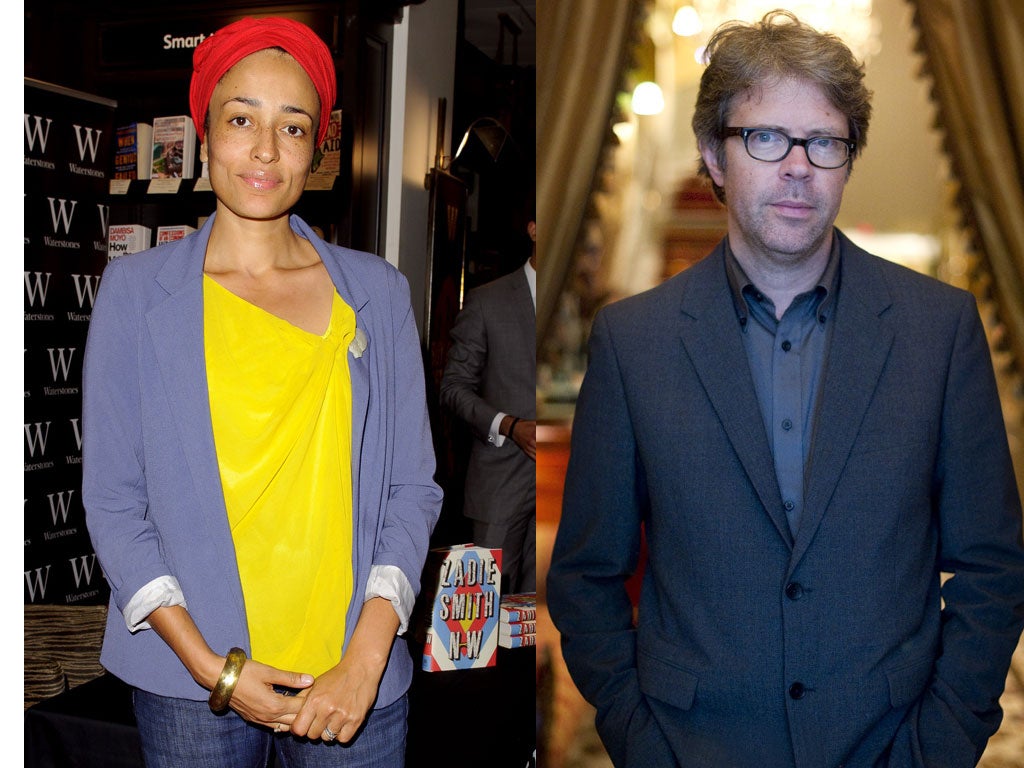The rise of the international literary award goes hand in hand with the decline of the novel
Want to get on as a novelist? Then write for the world

Your support helps us to tell the story
From reproductive rights to climate change to Big Tech, The Independent is on the ground when the story is developing. Whether it's investigating the financials of Elon Musk's pro-Trump PAC or producing our latest documentary, 'The A Word', which shines a light on the American women fighting for reproductive rights, we know how important it is to parse out the facts from the messaging.
At such a critical moment in US history, we need reporters on the ground. Your donation allows us to keep sending journalists to speak to both sides of the story.
The Independent is trusted by Americans across the entire political spectrum. And unlike many other quality news outlets, we choose not to lock Americans out of our reporting and analysis with paywalls. We believe quality journalism should be available to everyone, paid for by those who can afford it.
Your support makes all the difference.Literature is going global. In reportedly opening up to American writers, the Man Booker Prize is simply following a trend which tends to weaken ties between writers and their national communities. When the Booker International was inaugurated in 2004 it was just one of many new awards for writers from all over the globe. The IMPAC, launched in 1996, was another. The shortlist of the Booker itself has long since looked like a flag parade for the Commonwealth. More and more a prize that only takes into account the literature of one country seems provincial; conversely, authors are encouraged to feel they should be addressing the whole globe, otherwise they have set their sights low. As a director of the Edinburgh Festival told me last year, “If a book is really good, it will reach out to everyone the world over.”
Is this actually the case, or does it just reflect enthusiasm for global celebrity and sales? I have judged both the IMPAC and the Booker International. The IMPAC has gone to authors not writing in English just seven out of 18 times. The biennial Booker International just once in five times. Because however willing and cosmopolitan a jury may be, a novel that truly comes from a different culture, written for that culture in that culture’s language, is a difficult creature to approach.
Do I really have the context to assess something written in Urdu, engaging a Pakistani audience in the throes of a historic crisis? When prizes go to foreign books, they tend to come from authors who are consciously writing toward an international public; Orhan Pamuk and Michel Houellebecq both won the IMPAC; many Commonwealth authors competing for the Booker have professedly been mediating between their cultures and ours.
The prize process sucks foreign writers into our tradition. The genuinely exotic is replaced by a palatable exoticism constructed for a global liberal community capable of granting the desired celebrity. A reader seeking an intense experience of the foreign would do well to look for translated novels that have not won international prizes.
Including American novels would not oblige Booker judges to engage with language problems (funnily enough, the last two Booker International Prizes went to Americans). It would vastly increase the number of eligible novels (already far beyond serious assessment). It would reinforce the illusion that Britain and the US share a common culture. Above all it would contribute to a growing feeling that the author is an international entertainer rather than an artist involved in a home community with a literary tradition. In fact the rise of the international award goes hand in hand with the decline of the novel as a serious influence in national debate, or a medium where the native language might be mined and renewed.
To top it all, the Americans, basking in a global power that confers cultural self-sufficiency, would be underwhelmed. No American author will prefer the Booker to the Pulitzer.
Tim Parks was shortlisted for the Booker Prize in 1997 and longlisted in 2003
Join our commenting forum
Join thought-provoking conversations, follow other Independent readers and see their replies
Comments